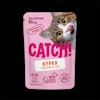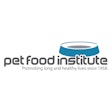
With one month to go, 2022 has been a relatively quiet year for pet food recalls and litigation. This year, only a dozen or so recalls have appeared on Petfood Industry’s website, most not associated with any deaths. Similarly, high-profile class action lawsuits have been uncommon.
Knock on wood, right? Perhaps long-standing sanitary measures, FSMA regulations and COVID-era biosecurity have combined to boost the pet food industry’s focus on safety in 2022. Nevertheless, the best time for a pet food maker to react to a recall, lawsuit or other crisis is when there isn’t one.
Pet food ingredient suppliers and equipment manufacturers need to be ready for recalls and other problems as well. Dog, cat and other pet owners want to know the story behind their pets’ foods. That becomes especially true when a recall threatens pets’ health or even lives. Those pet owners may well trace a problem back from a brand to suppliers.
What’s more, journalists in the popular press are now more likely to cover pet food recalls, due to their readers’ increased focus on their own pets’ health and nutrition. Dog bites man isn’t news, but man recalls dog food is. Social media makes the situation even more complicated. One angry customer can leverage social media to amplify their voice.
Consider journalists’ jobs during pet food recalls
At the Kemin and Rheintek Seminar 2022 in Santiago, Chile on November 18, I spoke about media relations during a crisis. Pet food makers and ingredient suppliers can learn from how journalists work in order to prepare before a recall or other crisis occurs. Being prepared for reporters’ questions can help pet food industry professionals do as numerous memes and unattributed quotes suggest and turn a crisis into an opportunity.
One key to working with reporters during a recall is to consider the work a reporter does. Journalists often work on tight deadlines and face pressure to publish news before competitors. Adding to the 24-hour cable news cycle, the constant demands of social media’s unsleeping feeds increase these pressures. Journalists have to work with the information they have available when they need to publish. The sooner pet food makers and suppliers can provide reporters with that company’s official statement, the greater the likelihood a brand will get their message out. Beyond the recall notification from the U.S. Food and Drug Administration, active media outreach makes a company more accessible and seem more transparent to both press and consumers.
On the other hand, when a company doesn’t reach out to the press or refuses to answer interview requests, silence can seem like guilt. While not every pet food company or supplier can afford a public relations team, any size business can learn to craft press releases by thinking about what journalists need.
Journalists aim to answer six essential questions in every article, the five W’s and Y. During a recall, those questions may work out like this:
- Who – The name of the pet food brand or supplier involved
- What – What products are being recalled? What is the reason?
- When – When did the event occur? When was the recall initiated?
- Where – Where was the affected product distributed?
- Why – Why is the recall important to pet owners? Does it threaten their pets’ health or their own?
- How – How did the event take place? How can it be explained?
Pet food professionals need to answer as many of those questions as possible in their own press releases and social media posts during a recall or other negative event. This helps the journalist include a company’s point of view. Although media outreach doesn’t guarantee that official talking points make it into the news, reporters are more likely to include a company’s point of view.
NOTE: Rheintek Latinoamerica and Kemin Industries sponsored Petfood Industry’s presentation in Chile. The companies provided Petfood Industry’s reporter with room, board and transportation.



















